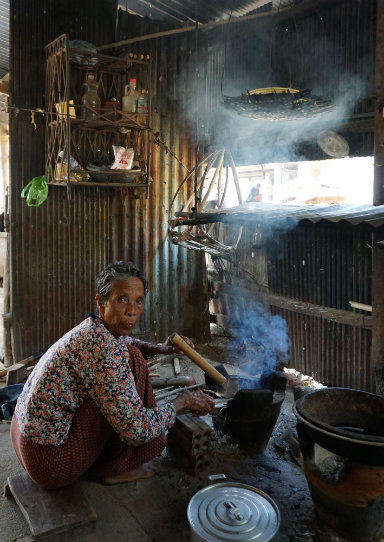Household air pollution caused by using firewood and charcoal for cooking is a silent but pervasive killer. Inhaling harmful particles causes premature deaths and serious illnesses, such as lung cancer and child pneumonia. The WHO estimates that this results in 4.3 million premature deaths annually, mainly in low and middle-income countries. Now, thanks to a new tool developed by standard and certification body Gold Standard, we can quantify these health hazards and measure the impact of clean cooking solutions. This also means measuring our progress towards Sustainable Development Goal (SDG) 3: good health and well-being.
Gold Standard announced the ground-breaking measuring tool earlier this month at the second annual WHO Conference on Health and Climate. The measurement tool uses the Averted Disability Adjusted Life Years (ADALYs) impact metric, which measures the overall disease burden, expressed as the number of years lost due to ill health, disability or premature death.
Moreover, the tool can measure the impact of clean cooking and thus provide evidence on the positive influence on health of using clean fuels, like biogas. “This new programme tackles the issues at the intersection of health and climate,” says Marion Verles, CEO of Gold Standard.
A 2015 study by Hivos (see top righh sidebar) provided evidence that clean cooking on biogas stoves indeed has a positive impact on health. “Now that we have a tool to quantify the impact, we can also use it to provide evidence that will attract funding to support the uptake of biogas-based clean cooking infrastructure,” says Maria Claudelin, Carbon Finance programme officer at Hivos.
“Our study measured the reduction of hazardous pollutants in households that use biogas and compared those with households that still use firewood for cooking. A decrease in pollutants was shown and we estimated some 30 deaths were prevented by the 23,000 biogas digesters built in Cambodia since 2006. Now with the ADALYs measuring tool and the expected increase of (private sector) investments, these numbers can only rise. Not just in Cambodia, but in all countries where biogas programmes are implemented to support clean cooking.”




